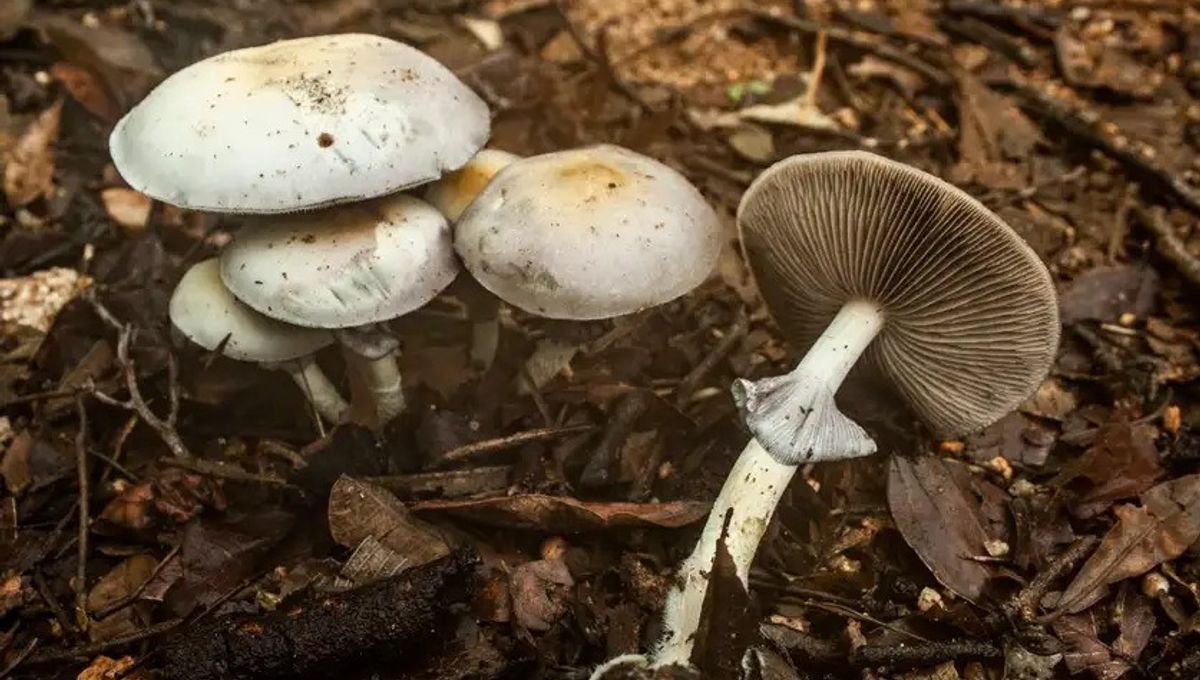
Mycologists in southern Africa have discovered the closest wild relative of domesticated magic mushrooms, revealing new insights into the genetic history of psychedelic fungi. Describing the new species in an as-yet un-peer-reviewed study, the researchers say their discovery challenges the assumption that shrooms spread around the world alongside domestic cattle, suggesting that the mind-altering specimens may instead have hitched a ride on the poop of ancient bison.
So far, around 160 different varieties of psilocybin-containing mushrooms have been discovered. Of these, a species called Psilocybe cubensis has become by far the most popular, and is now cultivated across the world by people seeking psychedelic experiences.
While P. cubensis can be grown at home or in a laboratory from spores, its preferred natural substrate is cattle dung. In fact, the species was first discovered in a patch of cow poop in Cuba in 1904 (hence the name “cubensis”), although exactly where it originates remains a topic of considerable debate and uncertainty.
According to the authors of the new study, the leading hypothesis is that P. cubensis first appeared in Africa before being inadvertently introduced to the Americas when Europeans brought domestic cattle to the region in the 15th and 16th centuries. However, the African continent has historically been understudied by mycologists, which means there is no extensive database of local mushrooms that would allow for this theory to be tested.
Indeed, P. cubensis has yet to be found in Africa, although there are reports of mushrooms that look very much like this popular breed of shroom growing in cattle fields throughout the continent. Between 2013 and 2022, the study authors collected several specimens of one such lookalike in Zimbabwe and South Africa, which they then sought to identify via morphological and genetic analyses.
Results indicated that the mushroom is not P. cubensis, but a close free-living relative that the researchers have named P. ochraceocentrata. This discovery brings the total number of Psilocybe species found in Africa to seven, three of which have been officially described in the last six months.
Significantly, an examination of the new mushroom’s DNA revealed that it shared a common ancestor with P. cubensis around 1.5 million years ago. According to the study authors, this ancient mushroom probably grew on the dung of wild herbivores, and “this habit likely predisposed P. cubensis to its present specialization on domesticated cattle dung.”
Moreover, because P. ochraceocentrata and P. cubensis split millions rather than hundreds of years ago, it now seems less likely that the latter evolved from an ancestral species that was brought to Cuba by European colonists in recent centuries.
“Our divergence analysis suggests that their MRCA [most recent common ancestor] likely originated alongside the large herbivores, possibly during the expansion of… grasslands in East Africa 1.8-1.2 [million years ago]”, write the researchers. “Coincidentally, this is also the period when Homo erectus became the dominant hominin in East Africa and the first to spread from Africa through Eurasia via the Levantine corridor alongside large herbivores, including bovids,” they add. “These major migration events present a possible avenue for dispersal of the MRCA of P. cubensis and P. ochraceocentrata from Africa.”
In other words, as these ancient herbivores and hominids carried the spores of this ancestral magic mushroom around the world, it may have evolved in order to adapt to new habitats, eventually giving rise to P. cubensis somewhere along the way.
Attempting to retrace the poop-loving mushroom’s journey to Cuba, the researchers suggest that it may have reached the Americas when bison first crossed over from Asia some time between 195,000 and 135,000 years ago. Such a theory is unlikely to go unchallenged and will need to be supported by additional evidence, but these findings do at least hint at a new narrative in which P. cubensis arrived in the New World long before humans did.
The study is currently available as a preprint on bioRxiv.
Source Link: Brand New Magic Mushroom Species Suggests Shrooms Reached America On Bison Poop